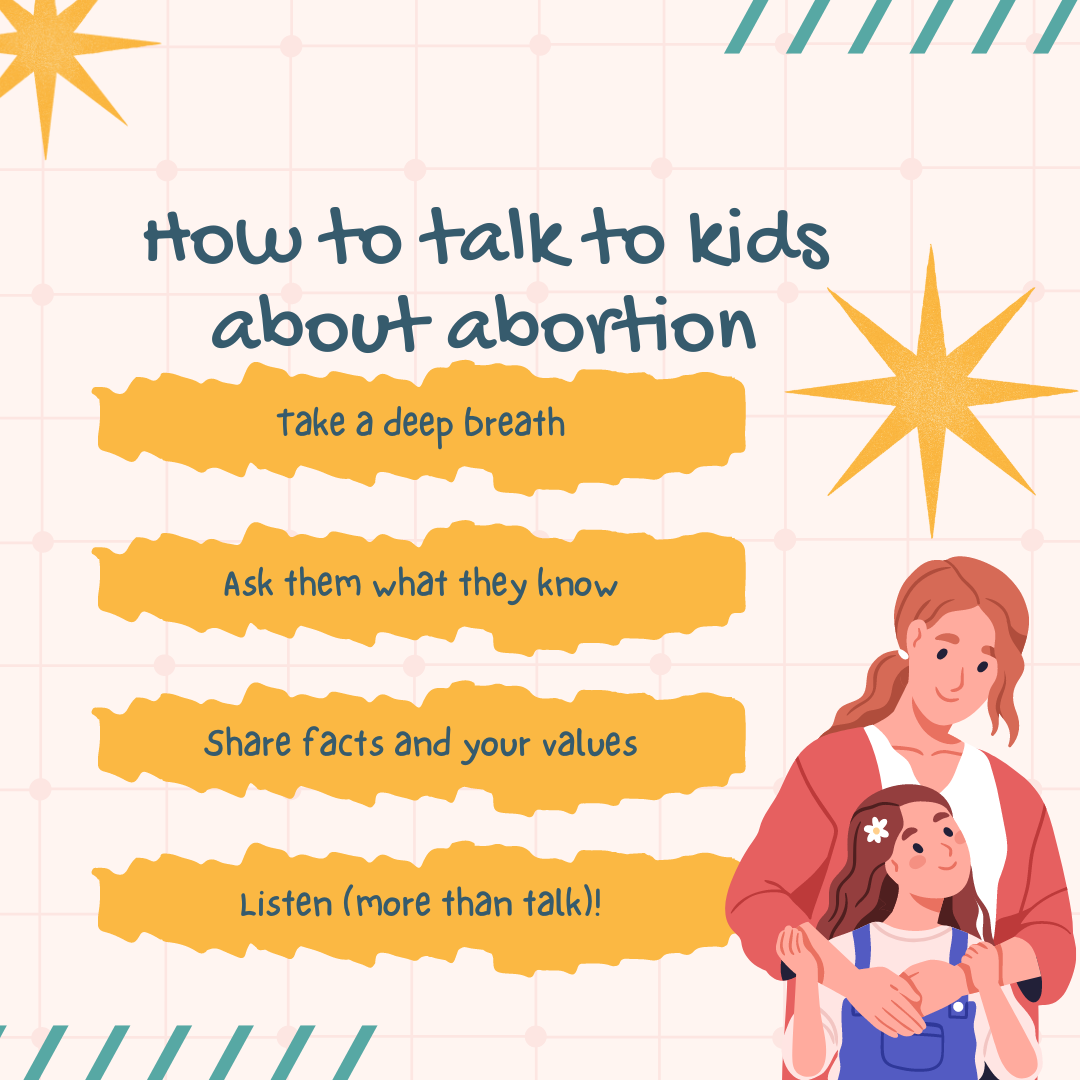In this guest blog for Honest Mum, author/educator Rachel Ginocchio explores how to talk to young children about where babies come from -with and without help.
Read MoreIn this guest blog for the Health Teen Network, educators can learn the basics of reproduction (sex, insemination, IVF, donor conception and surrogacy) and why it’s important to get up to speed.
Read MoreThird party reproduction is an important part of how families form. How does donation work and how do people conceived with donated gametes and embryos feel about it?
Read MoreAbortion is one of those topics that can be really, really hard to tackle with our kids - especially as we adults are usually super opinionated about it. Here’s some open ended questions to help kids think critically and empathetically about abortion.
Read MoreThe Alabama supreme court recently ruled that the frozen embryos are children, and thus protected by the law. How are embryos created , how do people decide what to do with any remaining embryos, and who should make the decision?
Read MoreFrom laugh out loud moments, to wide smiles to the class, to smiles to myself - sex ed class can provide it all. Sometimes these moments happen outside of the classroom during class prepping; other times they happen during class. These moments are precious and it reminds us that even within the context of serious, intense topics, it’s worth pausing every now and then to recognize how humours humanity can be.
Read MoreHere are ten reasons why talking to high school students about insemination, IVF, donors, surrogates, and egg and sperm freezing is relevant. When we talk about fertility, it isn’t always about students’ future fertility, it’s about them better understanding the here and now - how they came to be in the world, or their classmates, or their neighbor, or even the personalities they learn about in the media.
Read MoreCan you imagine being a teenager, acting responsibly after a possible pregnancy scare, trying to pick up Plan Band, and your choices are either 1. Having to ask the pharmacist for the medication you need because it’s behind the checkout counter and you can’t just grab it and go, Or 2. Having to bringing a huge plastic box up to the counter so a clerk can “unlock” it before you can purchase it. Can we please free PlanB?
Read MoreSex ed is violence prevention. It goes beyond helping victims know what to do when it happens; it tries to prevent that violence from happening to begin with.
Read MoreThe responsibility of answering the age-old question “Where do babies come from?” should not be on fellow five year-old classmates. It should be the privilege of [hopefully] better equipped parents, caregivers and teachers. But when the explanation is still missing key components - donors, surrogates, insemination and IVF - the burden is falling on the kids who are donor conceived. As any five year-old can attest, that’s not fair!
Read MoreJoe Biden and Kamala Harris have something in common with Donald Trump. They all have blended families! Some of the adults had kids from a previous relationship, and these kids now have step-parents and some have step-siblings! When we honor all different kinds of families, we honor all children, which gives them a solid foundation from which to grow.
Read MoreSex education used to be all about our body parts and how they work to create a baby and spread sexually transmitted infections. Over the past few years, we’ve moved to comprehensive sexuality education, which includes a broader range of topics. But, when we do talk about human reproduction? We are still stuck in the dark ages. With the help of donors, surrogates, frozen gametes, insemination and IVF, there are lots of ways to make babies and create family.
Read MoreSex Ed isn’t really about sex. It’s about our relationships with ourselves and others. Sure, relationships might have a little bit to do with sex (when you are old enough to make those decisions), but for most youth learning about sex education, sex is only one part of a much larger conversation. So why do we doom the chances of even having the discussion by keeping the word sex in the title?
Read More












